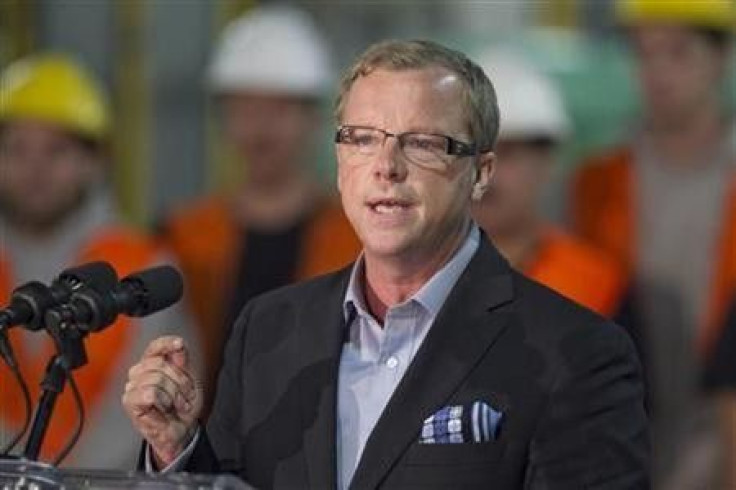Saskatchewan re-elects government; potash royalties firm

WINNIPEG, Manitoba (Reuters) - Brad Wall's Saskatchewan Party romped to the biggest election victory in decades on Monday in the resource-rich western Canadian province, promising to leave potash royalties unchanged for the next four years.
Saskatchewan holds one of the world's richest reserves of potash -- a mineral mined to fertilize crops -- and royalties typically add hundreds of millions of dollars to the provincial treasury each year.
The Saskatchewan Party won re-election in what looked to be the biggest landslide in 29 years, winning or leading in 49 of 58 seats in the province's legislature late on Monday with nearly all polling stations reporting.
The New Democratic Party (NDP) were on pace to claim the remaining nine seats, tying the party's all-time worst showing.
(Wall) really hugged the center, he did a good job of defining himself as a compassionate conservative, said David McGrane, a political studies professor at University of Saskatchewan. People warmed up to it and he avoided any big scandal.
The Saskatchewan Party has long dominated rural areas but it claimed additional seats in the province's largest cities of Saskatoon and Regina, which have tended to support the NDP.
Right-of-center politics dominate in the Canadian Prairie provinces, with the Conservative Party controlling most of the federal seats and provincial parties of the right governing in Saskatchewan and Alberta.
Wall has promised to leave potash royalties paid to the province by major producers unchanged for the next governing term, in contrast to the NDP, which wanted to raise them.
Saskatchewan is the home base of Potash Corp of Saskatchewan and its rivals Mosaic Co and Agrium Inc also have potash mines in the province.
Saskatchewan, flush with jobs in the mining and oil and gas sectors, has the lowest unemployment rate among Canada's 10 provinces. While other provinces sank into deficit during the recession, Saskatchewan has continued its streak of surpluses.
Wall has promised to funnel half of the province's surpluses into paying down Saskatchewan's C$3.8 billion government debt during the next four years.
© Copyright Thomson Reuters 2024. All rights reserved.











